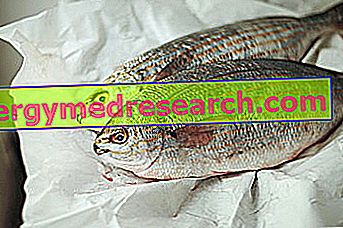
What is Fluenz - a flu vaccine?
Fluenz is a vaccine available as a nasal spray that protects against influenza A (subtypes H1N1 and H3N2) and influenza B. It contains live attenuated (weakened) influenza virus strains based on the official recommendation for the annual flu season.
What is Fluenz used for?
Fluenz is used to prevent flu in children and adolescents aged 24 months to 18 years.
The vaccine can only be obtained with a prescription. Its use must be based on official recommendations.
How is Fluenz used - flu vaccine?
Fluenz is supplied as a nasal spray in a disposable nasal applicator (with 0.1 ml doses in each nostril). It should only be used as a nasal spray and should not be injected. For children who have not previously been vaccinated against seasonal flu, a second dose should be given at least 4 weeks after the first.
How does Fluenz work - flu vaccine?
Fluenz is a vaccine. Vaccines work by "teaching" the immune system (the body's system of natural defenses) how to defend itself against a disease. Fluenz contains strains of the influenza virus that have been weakened so that they cannot cause the disease.
When the vaccine is administered, the immune system recognizes the virus as "foreign" and develops defenses to counteract it. The immune system can therefore respond more quickly when it is exposed to the virus again, helping to protect the body against the disease caused by the virus.
Every year the World Health Organization (WHO) makes recommendations on the influenza virus strains to be included in vaccines for the upcoming flu season. These virus strains must be included in Fluenz before it can be used. Fluenz will be updated with the weakened A-H1N1, A-H3N2 and B virus strains for each season, according to the recommendations issued by the WHO and the European Union for the northern hemisphere.
The viruses used in Fluenz are grown on chicken eggs.
How has Fluenz - a flu vaccine been studied?
The effects of Fluenz were first tested in experimental models before being studied in humans.
Nine main studies involving around 24, 000 children and adolescents and four studies involving around 11, 000 adults compared Fluenz with a placebo (a vaccine without specific therapeutic activity) or another injectable influenza vaccine containing inactivated (killed) viral source material of the same three flu strains. The flu strains were selected taking into account the flu season. The main efficacy index was the number of laboratory confirmed cases of flu caused by the three strains during the flu season considered, although one of the adult studies measured the number of cases of febrile illness (rather than confirmed cases of influenza).
What benefit has Fluenz - a flu vaccine shown during the studies?
In studies conducted on children and adolescents, Fluenz reduced the number of influenza cases caused by the three influenza strains to between 62% and 100% compared to placebo and between 35% and 53% compared to the inactivated reference vaccine.
Adult studies have shown that Fluenz may have some benefits over placebo, however the results have been mixed. Studies have also shown that in adults, Fluenz is not as effective as the inactivated reference vaccine.
What are the risks associated with Fluenz - flu vaccine?
The most common side effects of Fluenz (seen in more than 1 patient in 10) are decreased appetite, migraine, runny or stuffy nose and feeling sick. For the full list of all side effects reported with Fluenz, see the Package Leaflet.
Fluenz should not be used in people who may be hypersensitive (allergic) to the active substances, to any of the other ingredients, to gentamicin (a type of antibiotic), to eggs or to egg proteins. Furthermore, it should not be given to people with a weakened immune system due to conditions such as blood diseases, symptomatic HIV and cancer infection or certain medical therapies. It should not be given to children taking salicylate-based therapy (used in medicines such as aspirin to relieve pain).
Why has Fluenz - a flu vaccine been approved?
The CHMP pointed out that the studies have convincingly demonstrated that Fluenz is more effective than placebo and the inactivated reference vaccine in children and adolescents, but not in adults. The CHMP therefore decided that Fluenz's benefits outweigh the risks in children and adolescents aged 24 months to 18 years and recommended granting a marketing authorization for this group of patients.
More information about Fluenz - flu vaccine
On 27 January 2011, the European Commission issued a marketing authorization valid for Fluenz, valid throughout the European Union, to MedImmune, LLC. The marketing authorization is valid for five years, after which it can be renewed.
Last update of this summary: 01-2011.



